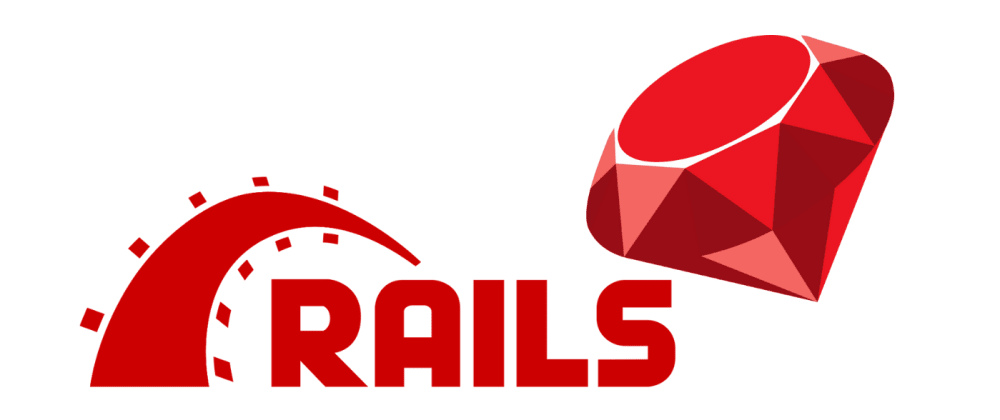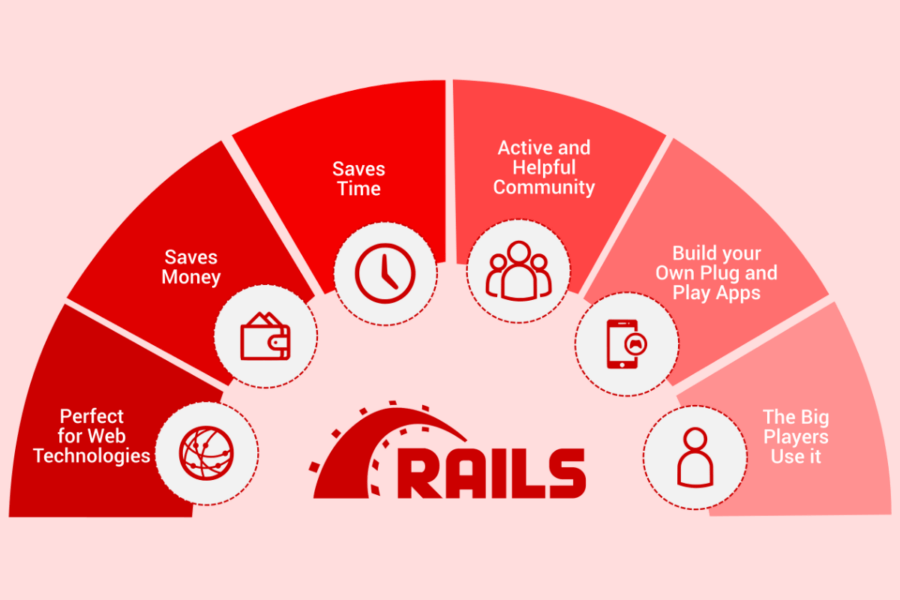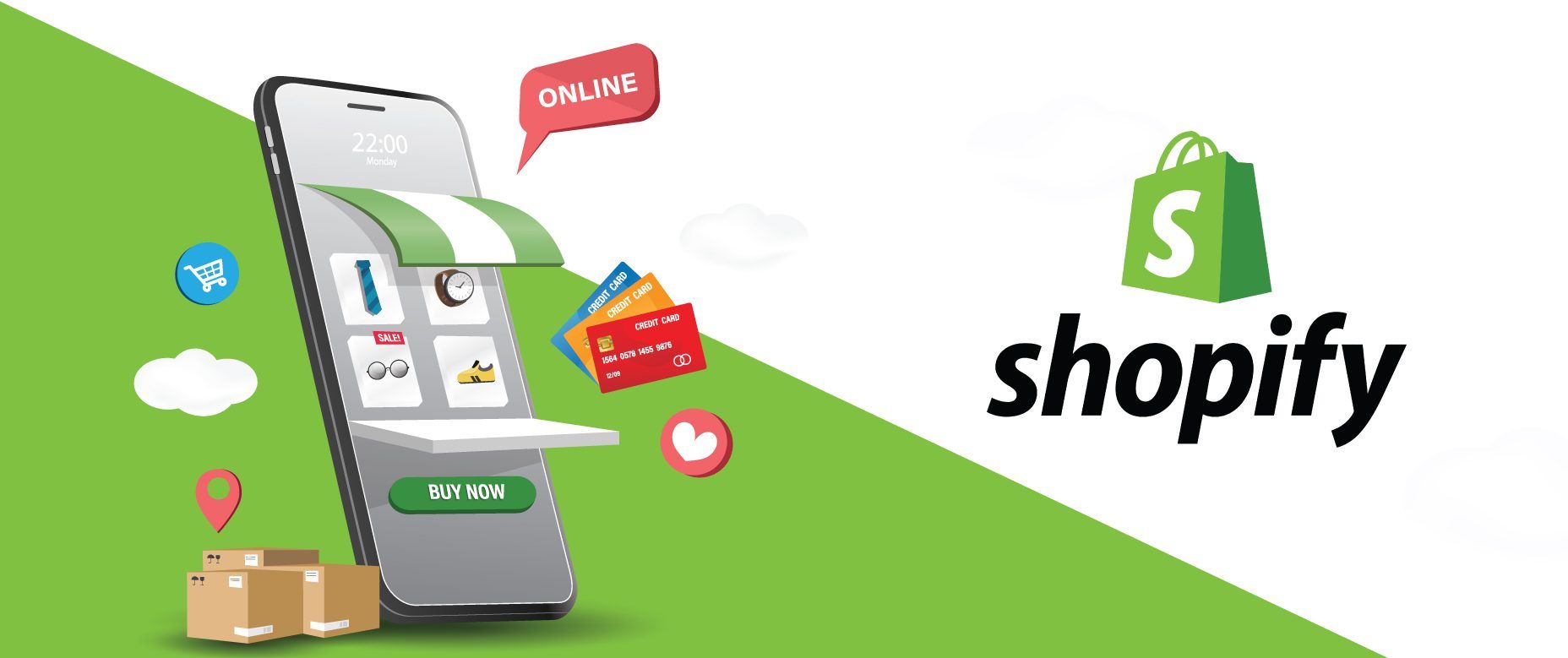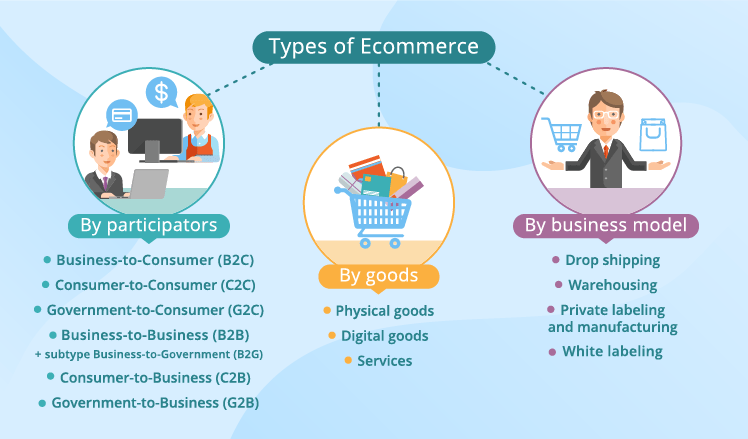Ruby on Rails ECommerce Development
Ruby on Rails eCommerce applications are still relevant in 2022 despite disruptive changes in the retail industry and rapid technological advancements. This is easily proved by Shopify. Known as a leading SaaS based on Ruby on Rails (RoR), it has empowered businesses to build more than 800 thousand online stores since 2016.
To put it more bluntly: Shopify is one of the chart-topping eCommerce shopping platforms that competes with Solidus and Spree. However, when you’re forced to choose between building an online store from scratch or using CMS like Shopify, Solidus, Spree, and others, you should carefully weigh the pros and cons of each solution. Yes, opting for the right tech stack is crucial, but we aren’t going to convince you that RoR is a silver bullet.

In fact, everything rests on business needs: companies are seeking to foster customer loyalty, build an efficient eCommerce infrastructure, and implement automation solutions for payments or warehousing. So, we’ve prepared this article in order to eliminate the question marks about Ruby on Rails for eCommerce development and emphasize its benefits. Also, you’ll find the answer to the question of what eCommerce platforms run on Ruby on Rails.
But before diving deeper, let’s take a look at market statistics—figures show that the total number of eCommerce websites ranges from 12M to 24M. Moreover, Statista reveals that the retail industry has undergone an irreversible transformation, highlighting the following stats:
- Retail eCommerce sales worldwide are estimated at 8.1 trillion USD
- ECommerce sales will have reached 22% of total global retail sales by 2023, and 24% by 2026
As you can see, eCommerce will thrive in 2023 and beyond. And if you’re planning to embark on online store development, Ruby on Rails, PHP, or ASP.net may seem appealing to you. With RoR, you’ll be able to quickly test and validate your ideas. And fully stocked solutions powered by RoR can significantly facilitate eCommerce website development.

Top Reasons Why Use Ruby on Rails for ECommerce
What sets Ruby on Rails apart from other technologies for eCommerce web application development? Check out the original features:
Cost Effectiveness
Rails is a free framework for both individuals and companies. Being compatible with free web servers and numerous databases, this technology is profitable from a financial point of view. Ruby on Rails increases the cost effectiveness of the project whether it’s a regular website, project management system, or eCommerce platform.
Fast development
Startups choose RoR because it allows them to do their best under tight schedules. All Ruby on Rails applications have a similar structure, which is quite useful for seamlessly incorporating new engineers into a project. What’s more, entrepreneurs value Rails the most because it’s well-suited for rapid web development. With a framework, you need a small team to build an MVP fairly quickly and then move strictly to a beta version of the product. Alternative solutions including .NET or Java Spring do not provide the same opportunities for fast development.
Flexibility
Using various modules, Ruby on Rails allows you to create e-commerce applications that you can easily modify and combine later. To introduce any changes and implement new functionality, you can easily use 150K gems (pre-defined software packages).
The flexibility of RoR also permits you to focus on building an MVP to quickly test assumptions about your eCommerce business. In other terms, with RoR, you have a unique opportunity to adapt and fix anything effortlessly or craft a solution with a sophisticated ecosystem.
Safety
Sales transactions include sensitive data such as email, delivery address, payment details, bank card number, and so on. That’s why security should be the main criterion for customers who make purchases in the online store via a PC, laptop, tablet, or smartphone. And to ensure the security of transactions and personal data, companies may rely on RoR, which allows signing and encrypting cookies and has in-built placeholders to deal with SQL injection.
The Ruby on Rails community offers so-called gems that can be used by online stores to enhance fraud protection. Gems like brakeman can detect security vulnerabilities, while others are capable of verification or protection of payment details.
Reliability
Improving the reliability of the application means avoiding and minimizing possible failures and cases of instability while ensuring regular updates. Many people remain dissatisfied with unreliable products and are more likely to abandon them if the user interface is poorly balanced. As for Ruby on Rails eCommerce products, they have all chances to be reliable if thoroughly tested before the release.
The CyberCraft team tests developed eCommerce solutions to eliminate bugs and check whether high load derived from thousands of transactions won’t become an obstacle to the prosperity of the product. And here it’s about time to consider scalability as another advantage of RoR in web app development.
Scalability
The scalability of the eCommerce Ruby on Rails platform means that it can easily handle multiple requests sent by multiple users and be adapted to the business needs in the case of growth. Therefore, it’s possible to scale an eCommerce application to process more traffic if needed. Automation and ready-to-use blocks will intensify the process because payment gateways or the checkout settings don’t require much of a developers’ time. However, you can avoid building an online store from scratch and go down a path of using fully stocked eCommerce platforms, also known as eCommerce frameworks.

In-demand Ruby on Rails ECommerce Platforms
Shopify

Shopify is known as an e-commerce platform for building online stores and selling online through the streamlined dashboard. With this platform based on RoR, users can build stores and sell on social media sites, seller marketplaces, other blogs and websites and via email, text and chat. Moreover, Shopify supports in-person selling—built-in point-of-sale (POS) for retail stores, pop-up shops, and also market sales come in handy here. All sales channels in Shopify can be connected, and customers choose different plans, payments, shipping and taxes options. And the main advantages of Shopify are scaling capabilities and a secure tech stack, including Ruby on Rails, under the hood.
Spree

This open-source Ruby on Rails e-commerce framework has its roots in the RailsCart project launched in 2007. A year later, it changed to a code hosting service and was named Spree wi. With Spree, you can build large e-commerce apps like GoDaddy, Garmentory, Huckberry, and so on.
The platform offers many different features related to customer interaction, multi-channel and international sales, marketing, back office, and compliance. You can link your app to a variety of analytics, fulfillment, search, marketing, payment, shipping, and tax tools.
It’s notable that Spree has already switched from built-in storefront to headless, thus becoming more flexible and giving users the chance to build online stores while exposing API potential.
Solidus

Solidus has evolved into an eCommerce framework in 2015. Currently, it’s a free, open-source tool. With Solidus you can build an e-commerce application compatible with various devices and operating systems. This platform is community-centric, so it uses a reliable ecosystem and is recognized by companies with a world-wide reputation:
- Github
- Zendesk
- Square
- Twitch
- Basecamp
In terms of extensions, Solidus is even better than Spree. Yes, there are fewer extensions here, though the high quality of these extensions makes them easily controllable components that can be transformed into code and help deploy an eCommerce product while avoiding a lot of compatibility issues.
When it comes to payment gateways, Solidus offers Solidus Gateway. However, at CyberCraft our team can offer other options to streamline the accounting process and prevent manual processing. Our team considers the integration of payment gateways as a crucial stage for any Ruby on Rails eCommerce project. Addressing this challenge implies a few API options from which our clients can choose. PayPal, Stripe, Amazon Paym Braintree, to name a few. In addition, the processing of payments for an online store can rely on the Shopify extension. For instance, Active Merchant is a Shopify solution that grants access to various payment gateways. There is also a Ruby gem suitable for credit card numbers validation.
Note: if you were looking for the answer to the question about what eCommerce platforms run on Ruby on Rails, pay attention that besides Shopify, Spree, and Solidus, there are also other RoR apps and websites in the eCommerce niche—Instacart, Spree-based online stores with advanced functionality like Farmdrop and Superpedestrian, Floyd, and much more.
ECommerce Ruby on Rails Projects Classification
We can classify RoR eCommerce projects into a few categories:
- B2C (Business to Consumer)
- B2B (Business to Business)
- B2B2C (Business to Business to Consumer)
- Subscription-based

The most common point of sale where a company sells products to end users is a B2C business. Over the past few years of consumerization, we have seen a pleasant decline in B2C and, conversely, an increase in B2B channels. Looking at market drift, business consumers decide to abandon their physical marketing models such as catalog printing. Following in the footsteps of B2C, B2B has also adopted RoR to develop e-commerce stores. The best example of a B2B website is Alibaba.
B2BC combines the B2B and B2C models. Large companies such as Walmart, Amazon, and AliExpress are turning to this business model by partnering with the outside world. RoR is a one-stop framework for bringing these business models together and building B2B2C startups from scratch.
How to Make an ECommerce Site in Ruby on Rails?
Whichever platform you choose to develop your eCommerce website, the whole process implies the application of different components. Therefore, to cope with this task, you should find tech-savvy developers—the CyberCraft team is at your service.
Our experience proves that any Ruby on Rails eCommerce project requires the following components:
- Storefront
- Inventory management
- Shopping carts
- Shipping and order fulfillment
- CRM
- Customer account
- Support
- Product reviews
- Social media integration
- Analytics and reporting tools
- Marketing module
- Accounting, finance, and payments integration
Why should I invest in Ruby on Rails eCommerce development? This is a fair question since there are dozens of other available technologies. We’d posit that the product’s tech stack should always be in line with business needs. That’s why we do not always use RoR for building online stores—though this framework has proved to be an easy-to-use, stable and powerful tool for e-commerce development.
With Ruby on Rails developers using RoR plugins and libraries for pipeline facilitation, you can build an online store within a few weeks. CyberCraft can implement your eCommerce project, thus strengthening your brand and nurturing customer loyalty—feel free to drop us a line and receive a comprehensive consultation.




